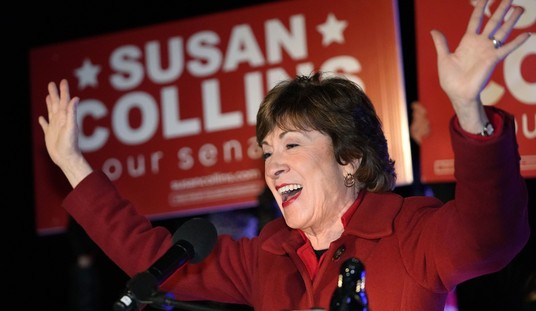It seems that all is bleak for Republicans these days. Sen. Arlen Specter has defected. Sen. Norm Coleman is nearing the end of his appeals. And the Democratic president is riding sky-high in the polls. But beneath the surface, or more specifically out in the country, something is happening: Republicans are winning races.
Yes, winning. In a series of special elections in state legislative races Republicans are on a roll. Here’s what Daily Kos had to say about a House district special election race in South Carolina:
If Republicans pick up this seat, it will give them a net gain of two in special state legislative elections. So far they have gained Democratic seats in Delaware and Maine, while Democrats have picked up a Republican seat in Kentucky. The seats in Maine and Delaware were heavily Democratic seats that were lost due to low Democratic turnout.
I will note that these state legislative elections are highly important for several reasons. One is that state legislatures determine control of redistricting for the U.S. House. Another is that state legislatures are a breeding ground for future candidates for the U.S. House or higher. Many of the winning Democratic candidates in 2006 and 2008 were state legislatures. Our goal is to destroy the Republicans’ cornseed advantage before it begins. If Republican Steve Moss wins this special election, there is a decent chance that he will be replacing Democrat John Spratt in South Carolina’s fifth district.
Well, Moss won that race this week. But that isn’t all. Republicans have won a batch of other special elections for state legislative seats since November, including Tom Kovach, in the special election for the 6th District of the Delaware House (which includes part of Vice President Joe Biden’s hometown); Barry Knight, who won the special election in the 81st House District in Virginia (which is DNC Chairman and Governor Tim Kaine’s home state); and Joan Huffman, in a Texas state senate race.
We have heard that Republicans in New Hampshire and throughout New England are at death’s door. Not in New Hampshire state races. Marilinda Garcia regained her seat (which she lost in a controversial recount) this week in the New Hampshire House to represent the 4th District. The previous week, Jeb Bradley, former two-term U.S. congressman, won in the 3rd Senate District in a hotly contested election. Both Garcia and Bradley won with a message of limited government and reduced taxes.
Interestingly, Bradley was bombarded by no less than eight mailers tying him to former President George W. Bush. New Hampshire voters were apparently unmoved by that effort, showing that finally Bush may have outlived his usefulness as a target for Democrats.
So what have state Republicans figured out that still eludes Beltway Republicans? Well, for starters, none of these Republicans had either George W. Bush or Barack Obama on the ballot. Undeniably, the electorate for these races is far smaller, the media attention lighter, and the emotions less intense than what Republicans faced in the November 2008 election. Without Bush on the ballot, Republicans need not carry the anvil of his unpopularity. And without Obama, Democrats lack much enthusiasm. It seems that Republicans, even in tough times, have preserved their base of local party organizers and volunteers who are critical for smaller races.
And these races have all, by and large, turned on bread-and-butter issues like taxes and state budgets. The interrogation memos, the AIG bonuses, and the other highly volatile issue which absorb national media rarely come up in these races. Instead, the Republican candidates have been able to focus on traditional messages of fiscal sobriety and economic recovery. (Although a number of the Republican winners make no secret of their conservative views on social issues, those issues were not the focus of their campaigns.)
Then there are the candidates themselves. An attractive young Hispanic woman like Garcia (who made a splash at a local tea party) or a tough-as-nails former judge like Huffman are the type of Republican candidates rarely seen these days in national races. And although Bradley lost in the tsunami 2006 election, he remained a popular local figure with strong ties to his district. In a nutshell, smartly selected and diverse candidates who can run well above party identification numbers or generic polling make a huge difference.
These wins represent more than consolation prizes for Republicans smarting from losses at the national level. State legislatures are in essence the minor league training grounds for future governors, congressmen, and senators (as well as an occasional president). Republicans remember all too well the dogged determination of then-Congressman Rahm Emanuel, who scoured the country in anticipation of the 2006 election to find attractive candidates well suited to their districts. And if Republicans are to make headway in 2010 they will have to repeat that exercise and draw heavily on the “bench” in state legislatures.
So the lesson for Republicans should be clear. Adjust the message to match voters concerns. Find articulate candidates including women and minorities. When possible, disengage from the battle between party labels and national personalities. And return to winning conservative themes of smaller government and lower taxes. That might not be a winning formula everywhere or in all races, but so far it has provided a ray of sunshine in an otherwise gloomy period for Republicans. And come 2010, one or more of these Republicans, or some of their new colleagues, may step into a national or statewide race and teach Beltway Republicans a thing or two.









Join the conversation as a VIP Member